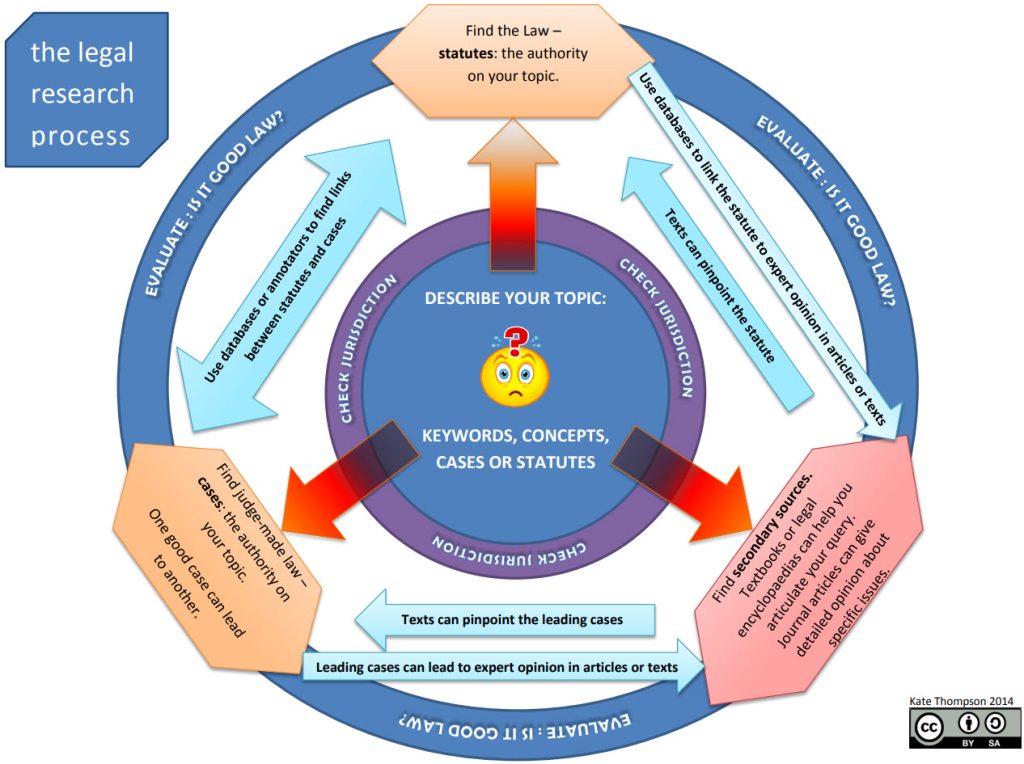5 Legal Research Strategy
Theresa Buller
How you approach your research task may vary depending on your research question.
Your legal research may start with a legal problem that needs to be answered. Legal problems can begin anywhere: in a judicial decision, in a section of a statute, in a broad question on a principle of law or in a human situation that involves legal thinking to untangle it.
A Legal Research Process
When you are new to legal research or unfamiliar with an area of law, proceeding from general information (secondary sources) to more specific, authoritative information (legislation and cases) is a good approach. Secondary sources are written by subject-matter experts who can efficiently lead you to the key authorities you will need to use. Alternatively, if you feel like you have a good grasp of the area of law and legal principles at play, you may wish to move straight to primary sources to answer your legal question.
- Start by finding general legal commentary on a topic – that is, a textbook or legal encyclopedia – to give you a broad overview of the subject.
- The general legal commentary will alert you to relevant legislation, and your next step should be to find it.
- The general legal commentary will also alert you to relevant case law, and your next step should be to find it.
- If no legislation is involved, you can proceed straight from the general commentary to the case law.
- Then you can refine your search by narrowing your search down to locate the precise principles involved. By now you should be able to refine your searching to focus on specific aspects of the area of law under investigation. This will involve a greater precision in your use of search terms, and at this stage it is usually a good idea to search for journal articles in the legal journal indexes.
This process is illustrated in the diagram below.


